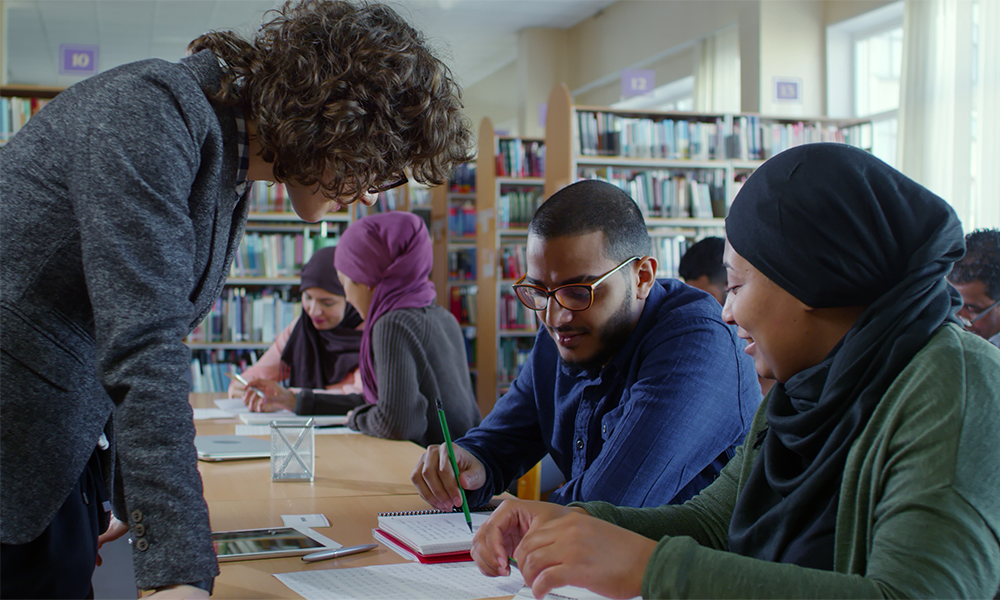Q&A with JMU's Suzanne Grossman
JMU Headlines
SUMMARY: JMU's Suzanne Grossman studies how immigrants use public libraries and how they provide essential services and supports for immigrant families as they adjust to life in the United States.
Suzanne Grossman is the associate director of research and public health for JMU’s Institute for Innovation in Health and Human Services, which serves as a bridge between JMU and the community, addressing the needs of underrepresented and vulnerable populations and allowing faculty to get involved in community programs for their own engagement or scholarship.
Grossman has studied how immigrants use public libraries and how they provide essential services and supports for immigrant families as they adjust to life in the United States.
University Communications spoke with Grossman about her research efforts, findings, and what’s next for this field of study.
Q: What programs, resources and services do public libraries provide to immigrants that allows them to better acclimate to their new communities?
Public library programs, resources and services depend on the library itself. Public libraries serve the whole community, so their programs are open to all. However, immigrants can benefit from many services and programs: borrowing books in English and other languages, parents/caregivers attending story times with their kids, and some libraries will provide patrons with an overview of library services.
For example, many libraries have job preparation support: help finding jobs, writing resumes and cover letters, and interview practice. This is helpful for all patrons. However, for immigrants, it can be especially helpful as the process of applying for jobs may be different in the U.S. compared with countries they have lived previously, so this free assistance can help people to learn and navigate a new culture of job searching as well as help people find jobs. Some libraries also have programs tailored to English language learners such as conversation groups or English classes.
Q: What health-enhancing benefits do libraries provide? Why is this important for immigrants?
Public libraries can provide a variety of health-enhancing benefits to all patrons as well as immigrants. Some libraries will provide services that directly benefit health such as blood pressure or blood sugar screenings.
However, all libraries provide services that indirectly benefit health. This relates more to the social determinants of health, which are the conditions where people live, work and play; or the environmental, social and behavioral factors that influence people’s health.
For example, libraries can help immigrants improve their English skills, which can help them find a better job, earn more money to have stable housing and access to medical care, among other health-related benefits. Additionally, participating in programs can build friendships and a greater sense of community, which can also increase one’s sense of belonging, social support, and as a result, health.
Q: What are some interesting takeaways from your research?
I think the first takeaway, and this may be commonly known, is that libraries are so much more than a place to borrow books. They are community centers where everyone is welcome.
Also, most librarians are happy to go above and beyond to help their patrons. They are a great resource about materials in the library and often about the surrounding community. Related to health, sometimes it can be hard for librarians to know where to draw the line in pointing someone in the direction of reliable health information and providing health advice, the latter of which is outside the scope of their role.
Q: What’s next for this line of research?
Specific to immigrants and public libraries, I would love to talk with non-library users to understand barriers to library use in efforts to raise awareness of the library. I would also love to promote public libraries as a place where health happens.
Also, generally, increasing collaborations and referrals between community organizations and libraries would be beneficial to all community members.
Editor’s Note: Check out more insights from Grossman by searching for the “Libraries as Cultural Groupons” audio story on NPR’s With Good Reason website.
